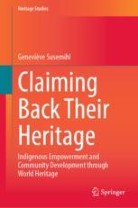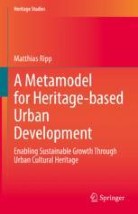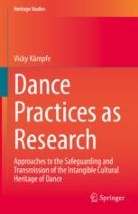Claiming Back Their Heritage
Indigenous Empowerment and Community Development through World Heritage


Book series
The idea to publish this scientific series emerged as a result of the transformation process of heritage from a cultural and natural asset that provides history and identity to a commodity with economic interests. Its contextual framework is provided by the UNESCO Convention Concerning the Protection of the World Cultural and Natural Heritage (1972), the UNESCO Convention for the Safeguarding of the Intangible Cultural Heritage (2003) and the UNESCO Memory of the World Programme. The research focus of the series is the wide range of applications and constructions of heritage associated with the above-named standard-setting instruments and their corresponding perceptions and paradigms. The reason for this is the fact that despite – or perhaps because of – these standard-setting instruments on the protection of heritage, there is an enormous variety in the understandings of what heritage is, could be or should be.
Different interpretations of heritage are evident in diverse structures and perceptions, from material to immaterial, from static to dynamic or even from individual to social or cultural. These interpretations were expressed in paradigms formulated in very different ways, e.g. saying that heritage has an inherent cultural value or ascribing importance for sustainable human development to heritage. Diverse perceptions of heritage are associated with conservation and use concepts as well as with their underlying disciplines, including inter- and transdisciplinary networks. Regionally and internationally, theoretically and practically, individually and institutionally, the epistemological process of understanding heritage still finds itself in its infancy. Insofar the new series Heritage Studies is overdue.
The series aims to motivate experienced and young scholars to conduct research systematically in the broad field of Heritage Studies and to make the results of research available to the national and international, theoretically- and practically-oriented, disciplinarily and interdisciplinarily established heritage community.
The series is structured according to the key UNESCO conventions and programmes for heritage into three sections focusing on: World Heritage, Intangible Cultural Heritage and Memory of the World. Although the conventions and programmes for heritage provide a framework, the series distinguishes itself through its attempt to depart from the UNESCO-related political and institutional context, which dominates the heritage discourse today, and to place the theme of heritage in a scientific context so as to give it a sound and rigorous scientific base. To this end, each of the three main sections addresses four dimensions of the heritage discourse broadly framed as Theory and Methods, Paradigms, History and Documents, and Case Studies.
Indigenous Empowerment and Community Development through World Heritage
Available Renditions

Enabling Sustainable Growth Through Urban Cultural Heritage
Available Renditions

Approaches to the Safeguarding and Transmission of the Intangible Cultural Heritage of Dance
Available Renditions

The Valorisation of Heritage Practices
Available Renditions

Available Renditions
